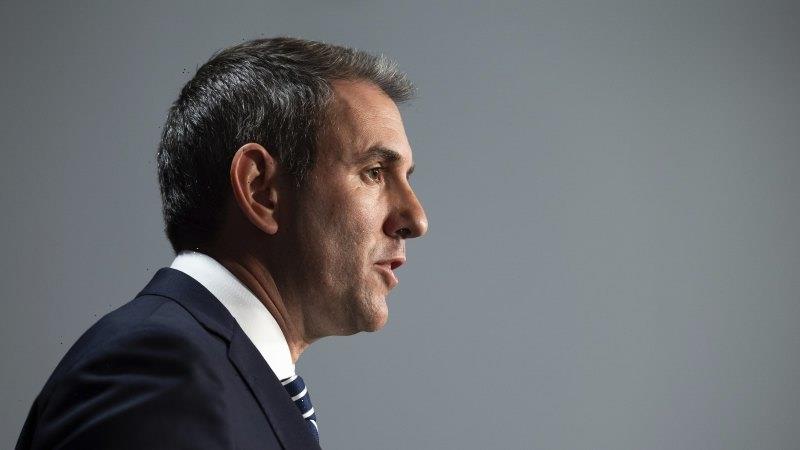Superannuation tax concessions worth $53 billion could be overhauled by Treasurer Jim Chalmers in an attempt to repair the budget bottom line, as the government moves towards blocking early access to retirement savings.
Chalmers said while the government’s immediate focus was on enshrining a definition for superannuation, that was not the end of the conversation about a sustainable future for the industry.
Treasurer Jim Chalmers says super tax concessions need a rethink as they are on track to cost more than the age pension.Credit:Alex Ellinghausen
“Right now, we’re on track to spend more on super tax concessions than the age pension by around 2050,” Chalmers said in a speech in Sydney on Monday.
“I’m not convinced that’s a sustainable way to get to our destination – good retirement incomes for more Australians, now and into the future.”
Currently, people can make before-tax contributions to their super, which are taxed at a flat rate of 15 per cent in the fund. Those concessional contributions are capped at $27,500 this financial year. Once people retire, investment earnings in their fund are generally tax-free, and payments to individuals once they are aged 60 or over are also generally taxed at 0 per cent.
Tax concessions on super are forecast to cost the budget $52.6 billion in 2022-23, just under the total cost of the age pension at $55.3 billion, according to an analysis of the October budget by the Australia Institute.
On Monday, the treasurer opened consultation on a definition of superannuation that would be enshrined in legislation.
The government has suggested that the objective of superannuation “is to preserve savings to deliver income for a dignified retirement, alongside government support, in an equitable and sustainable way”. The “preservation of super” was to ensure superannuation contributions should not be accessed unless as retirement income, it said.
Australians have about $3.3 trillion in superannuation, and legislating what that money can be used for was a Labor election promise.
It has been critical of the Morrison government’s early pandemic policy that allowed Australians suffering financial hardship to withdraw up to $20,000 from their super, as well as a Coalition policy that would give first-home buyers access to up to $50,000 of their super to help them purchase a property.
Assistant Treasurer Stephen Jones said late last year that enshrining a definition for super would protect it against “raids” for housing or university debt.
Opposition financial services spokesman Stuart Robert said on Monday the Coalition supported enshrining a definition for super, but that it should be focused on individual Australians.
“We agree there should be a purpose, and it should be about the individual and how the individual uses their money, not how the Treasurer wants to use their money for his purposes,” he said.
“This is members’ money, it’s individual Australians’ money, and there’s nothing more dignified than an individual Australian owning their own house. And if they can use their super to buy their own house, I think that is an outstanding purpose for superannuation.”
Robert also suggested superannuation could be used for even broader purposes.
“What could be more dignified than Australians getting early access to super because they’re 26 weeks unemployed and they’ve got a family. What could be more dignified than Australians getting early access to super for their medical needs, or frankly, the last two years of their life?” he said.
Deanne Stewart, Aware Super chief executive said the government’s proposed definition of super was a good starting point because superannuation was ultimately for retirement savings, and should not be a tool for wealth preservation or estate planning.
“It’s too easy to consider it as a huge pool of money that can be used for anything rather than it’s people’s own money for their retirement,” she said on Sky News.
Industry Super Australia chief executive Bernie Dean agreed.
“It should help avoid another disaster of allowing people to tap into super early for any reason, which hurts everyone,” he said.
Cut through the noise of federal politics with news, views and expert analysis from Jacqueline Maley. Subscribers can sign up to our weekly Inside Politics newsletter here.
Most Viewed in Politics
From our partners
Source: Read Full Article

